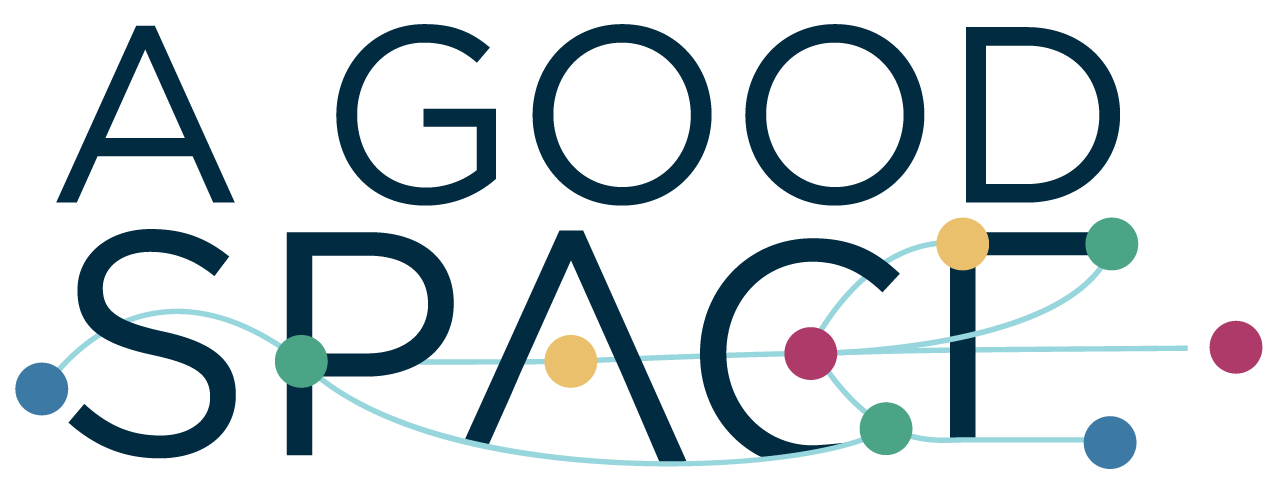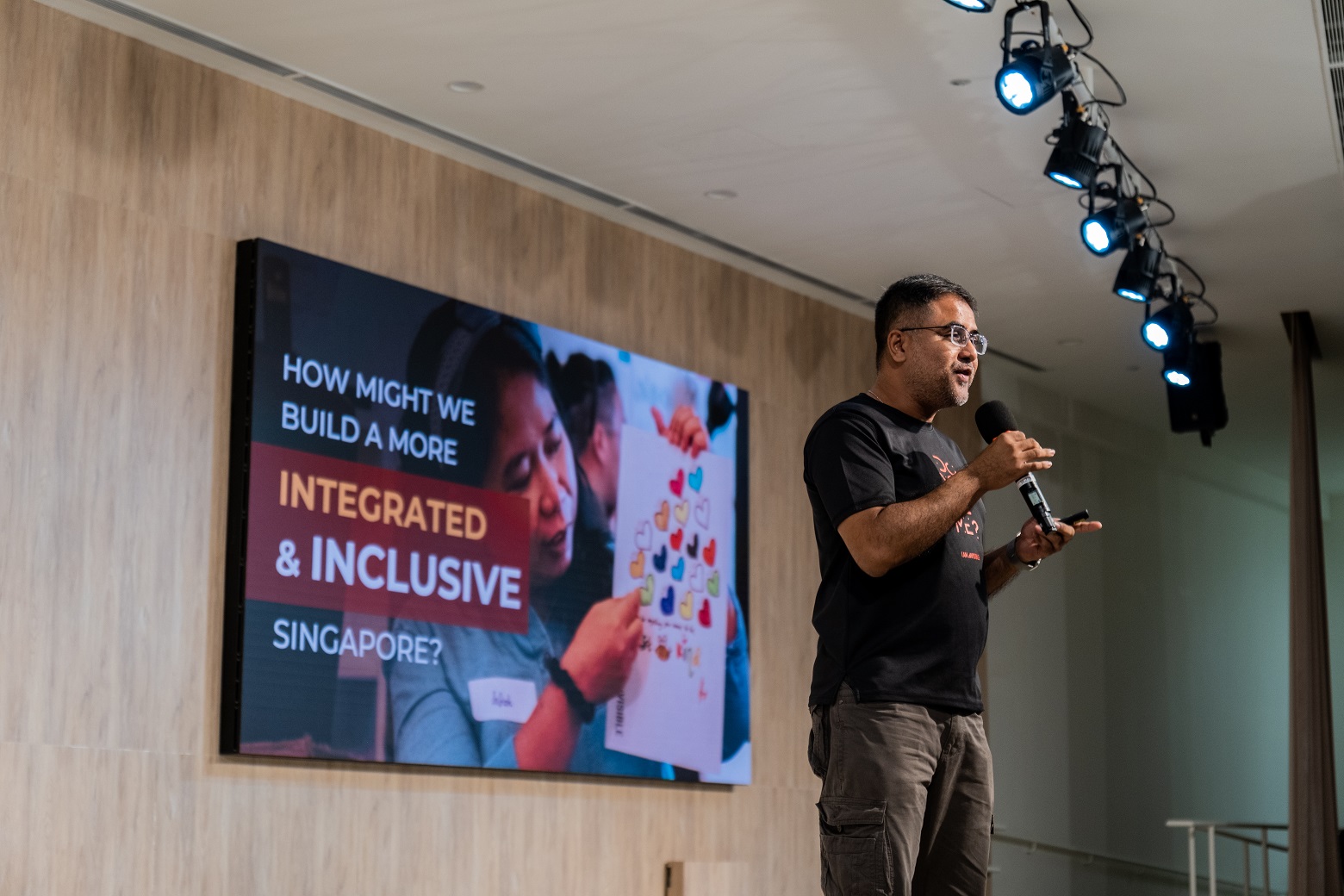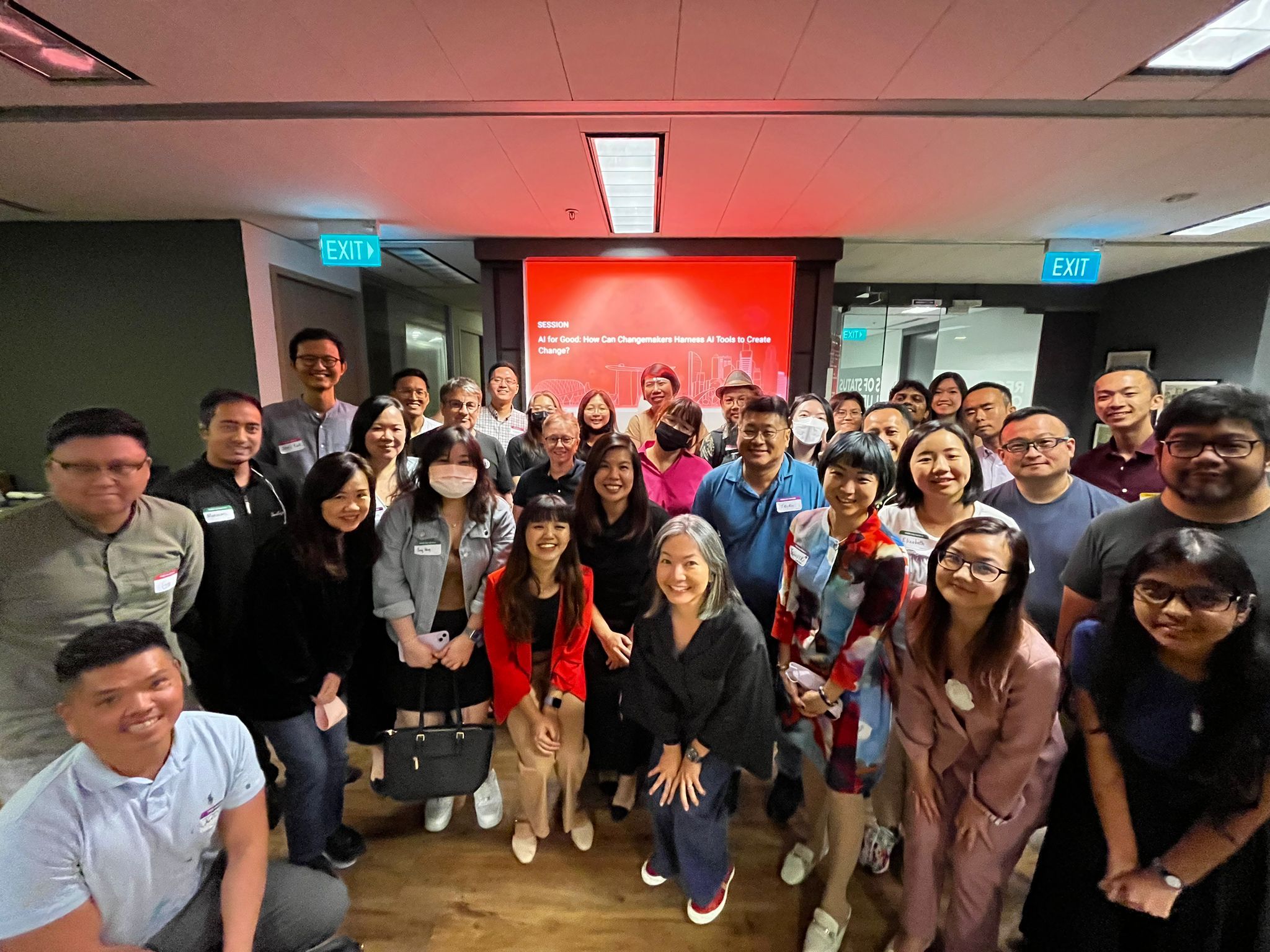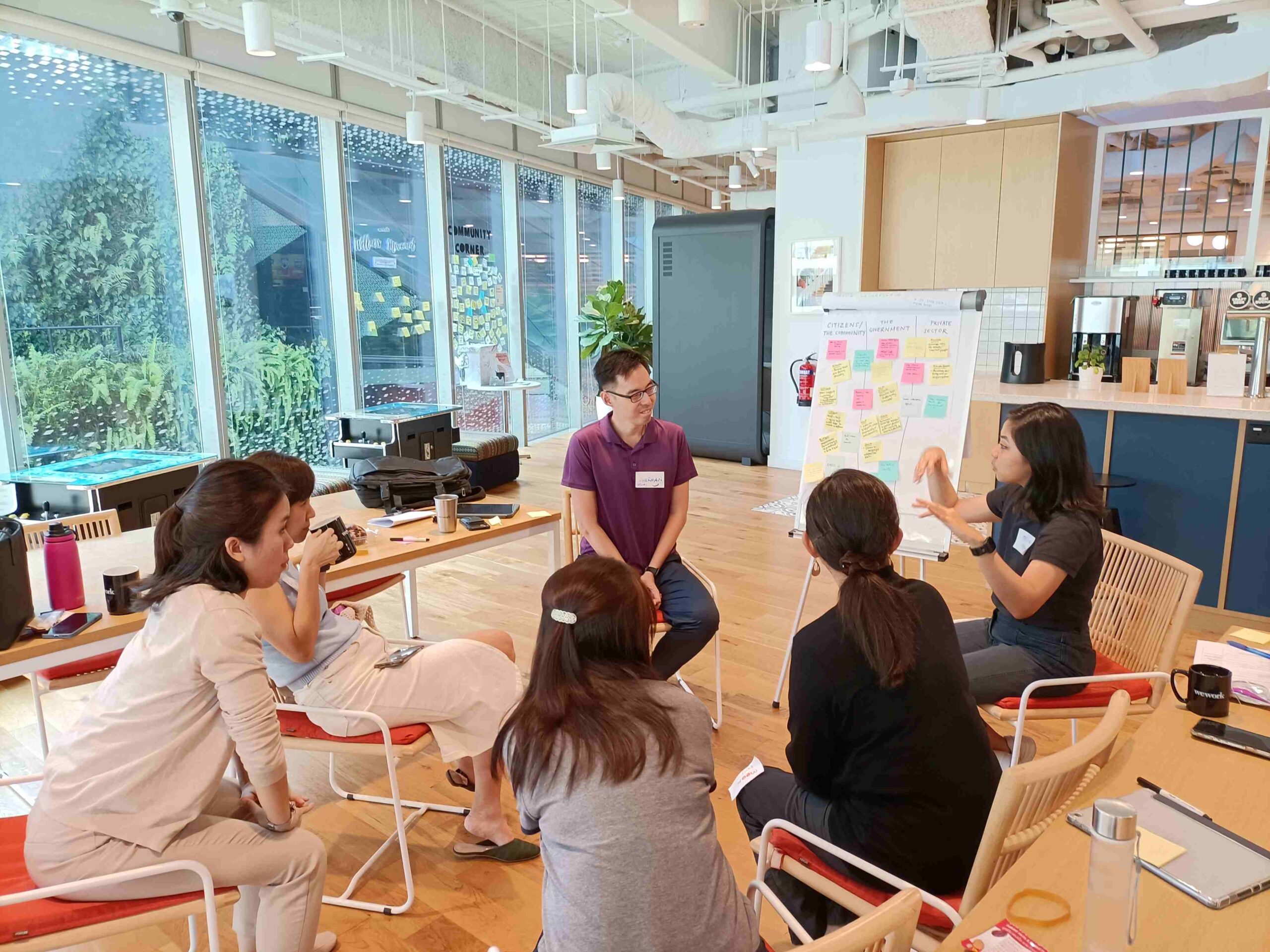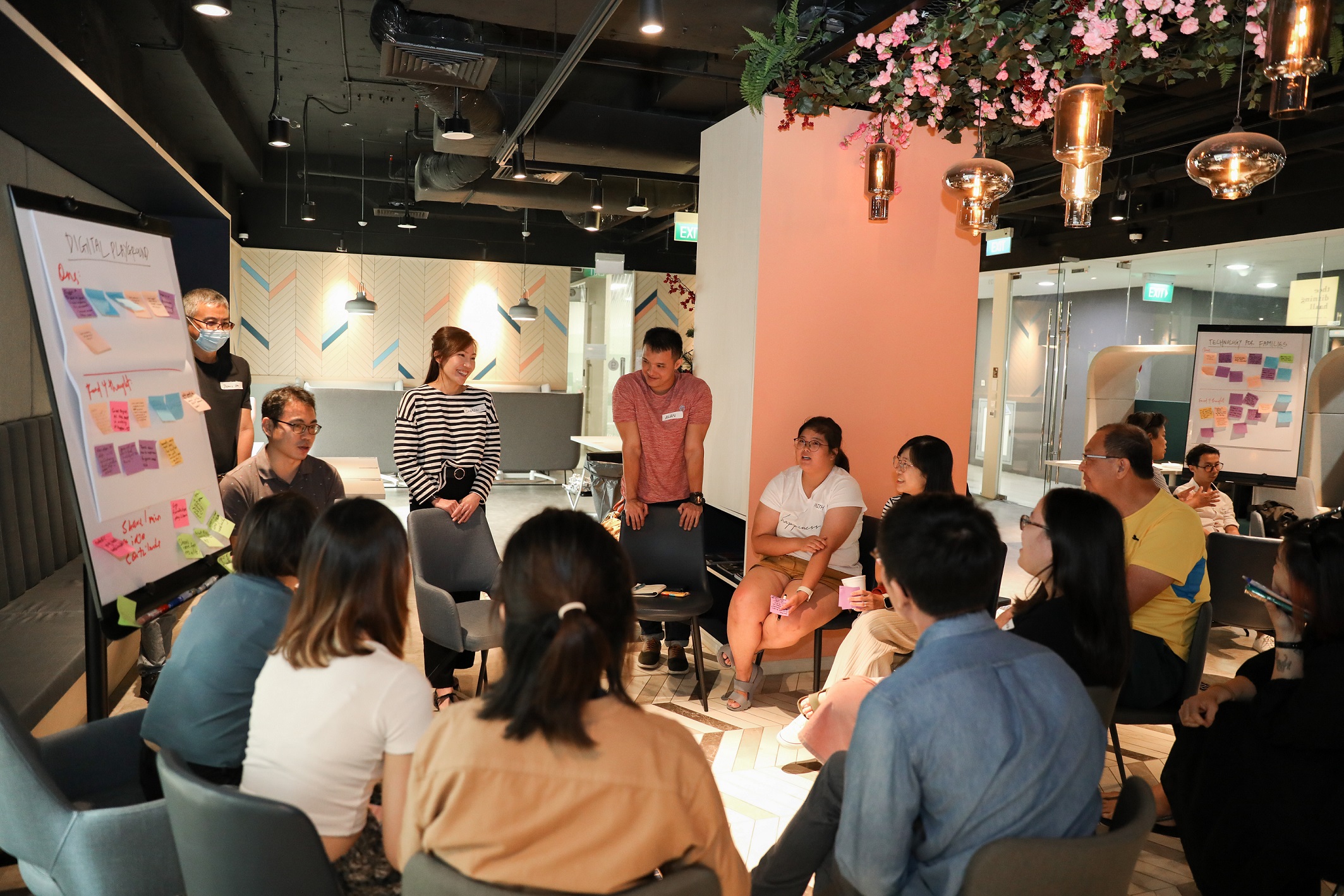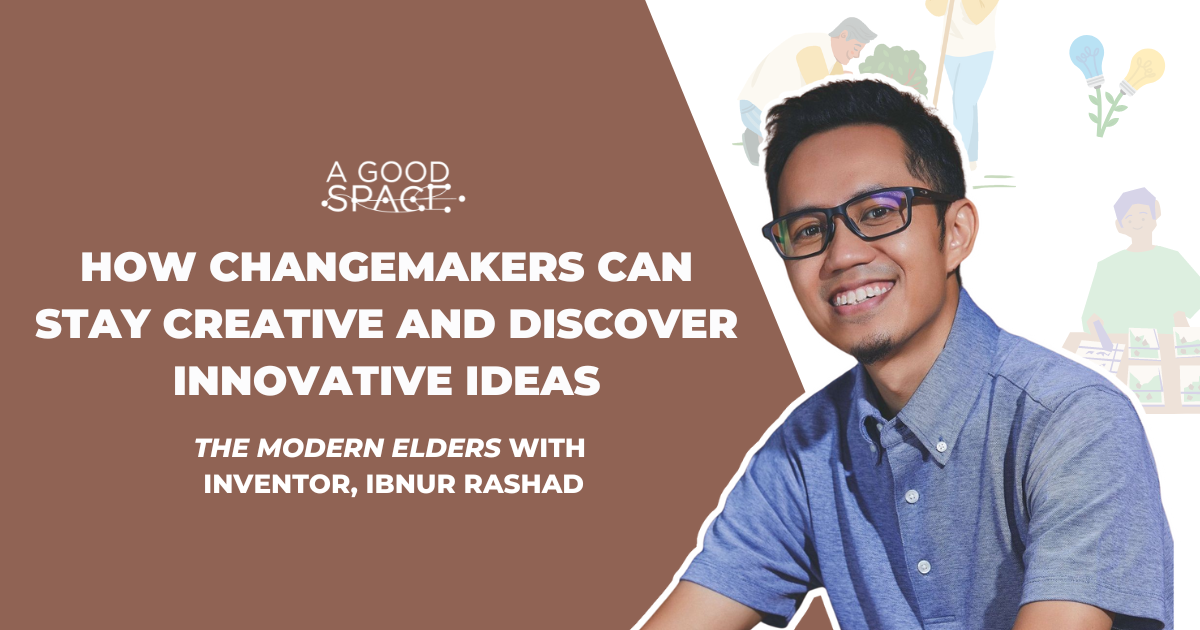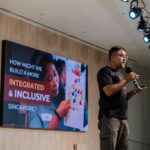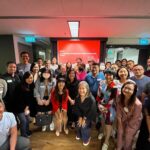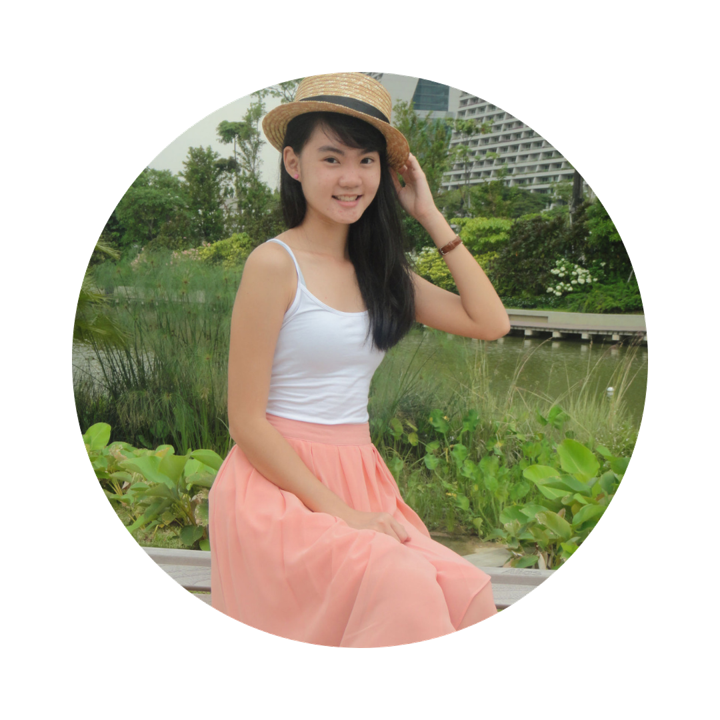Background
The COVID-19 pandemic has highlighted a widening digital divide amongst the wealthy and the poor. In the last two years, many efforts were started to help bridge this digital divide but as these issues continue to evolve after the pandemic, how can we do more?
Over 2 workshops spread out across the last 4 months, we have gathered people across all sectors – NGOs, government agencies, businesses and low-income community members themselves to identify 3 key challenge statements to improve digital inclusion in Singapore:
🌐 Conducive Environment: How might we ensure that public rental flat residents can access quality Internet connectivity in a conducive environment?
💻 Digital Literacy: How might we support public rental flat residents to acquire digital skills and attitudes to enjoy a better quality of life?
💸 Online Harms: How might we support public rental flat residents to navigate online spaces safely and build their resilience against online harms?
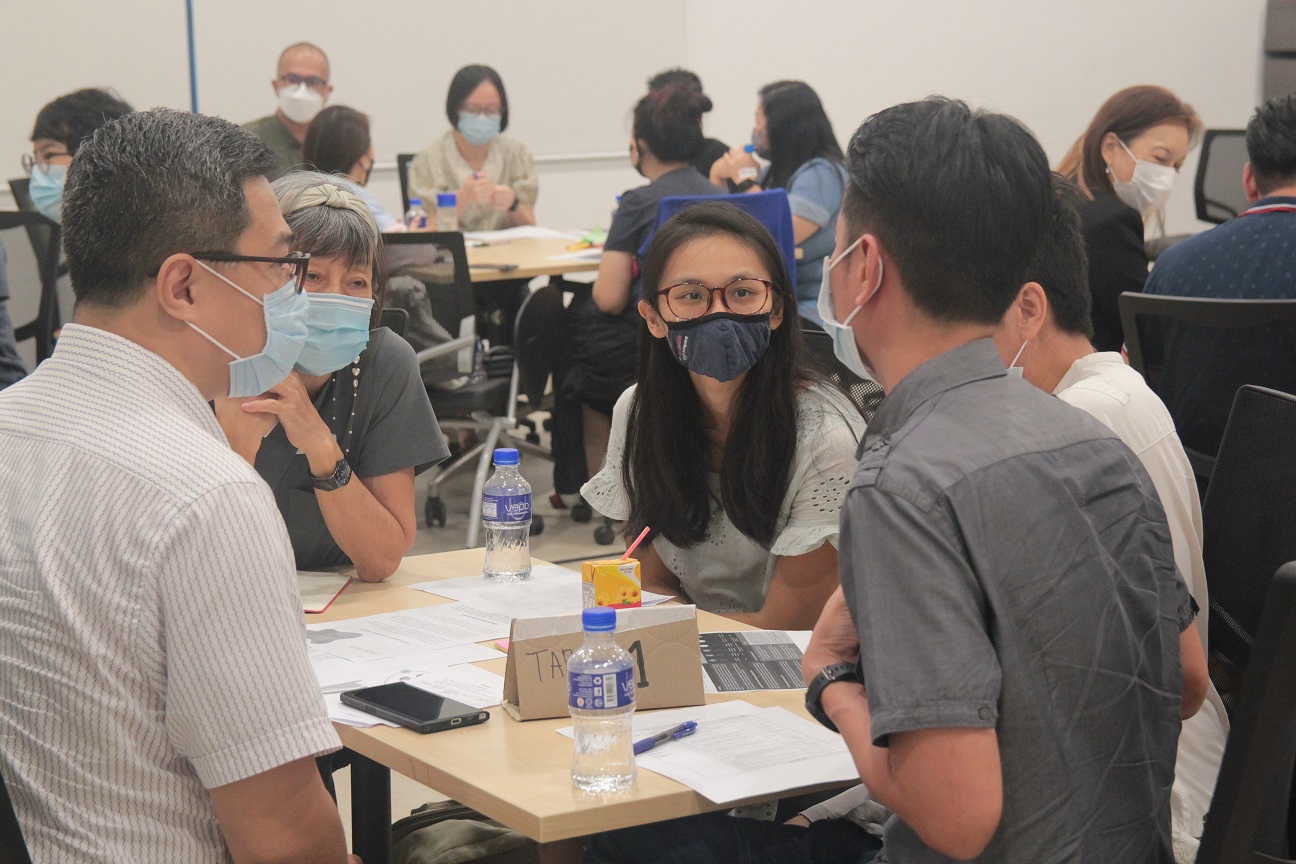
Following that, they generated some preliminary ideas to address these challenge statements. In total, eight teams were formed around these preliminary ideas and on Saturday, 15th October, we organized the third workshop to give them an opportunity to share their progress with each other, ahead of a pitch to funders, resource persons and potential volunteers at the fourth workshop. Here’s what happened:
Sharing of ideas related to conducive environment
The first theme of conducive environment saw three teams present their preliminary ideas. May, an architect, shared the two ideas her team was considering, either: (i) starting a neighbourhood campaign to encourage people to donate their data to IMDA’s Data For All Scheme, who can then redistribute the data to seniors, schoolgoing children and persons with disabilities from vulnerable communities or (ii) setting up a shared WiFi router for one block of rental flats.
Next, Bernice and Grace, both social sector professionals, shared observations from their work that parents of children from public rental flat communities may not have the necessary technical knowledge needed to supervise their child’s Internet usage or support their home-based learning.
Their idea was to train a group of these parents to be ‘Digi-Sitters’, to provide basic IT support, supervise usage of the Internet and use basic parental control applications to support their children to better navigate the digital world.
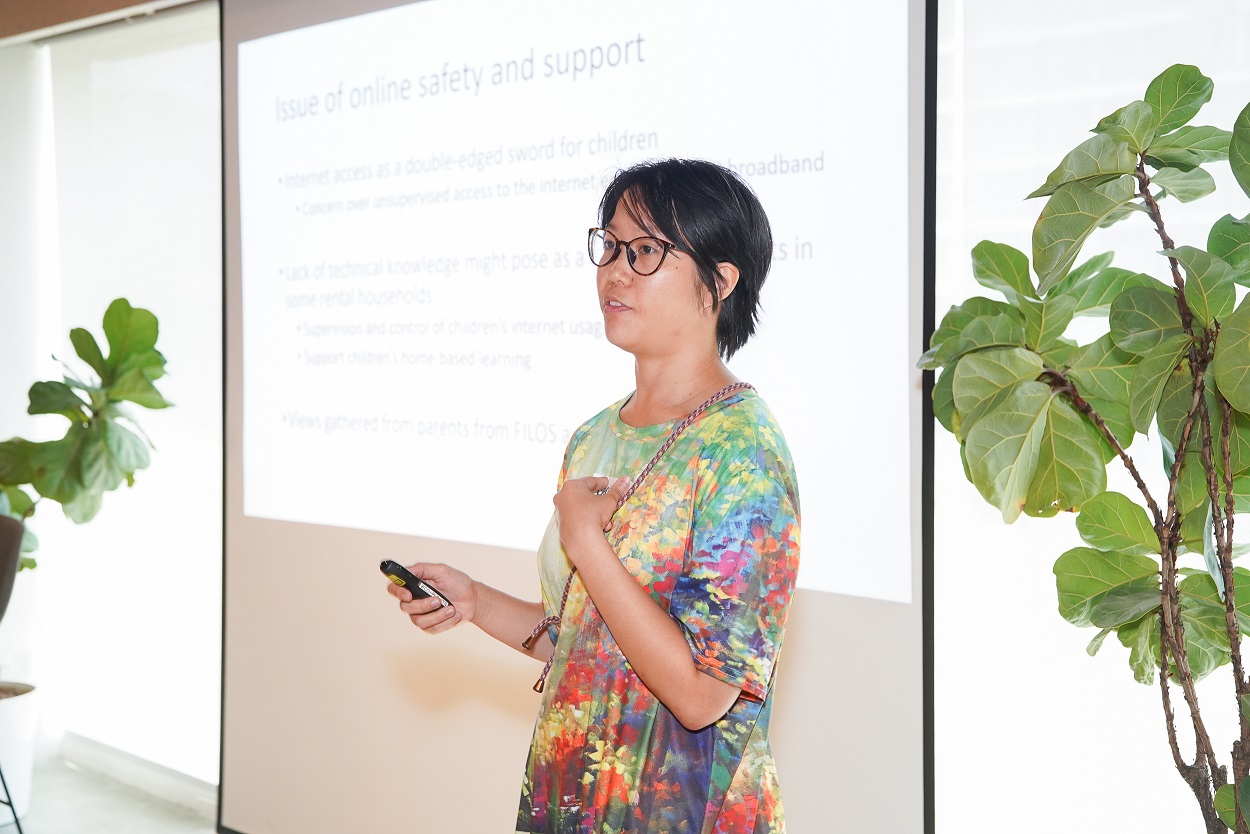
Lastly for this category, Greg, co-founder of social enterprise SG Assist shared his observations on how children living in public rental flats may face difficulties studying at home because of the cramped nature of their living space.
His initial idea was to work with co-working space providers to open their spaces on weekends for these children to study. However, after speaking to several social workers, he discovered several options such as after-school care centres, libraries and community centres that already had spaces for children and youths to study.
He mused that perhaps the real issue isn’t about a conducive space but more about understanding what children living in public rental flats are curious about and what affects their motivation to study.
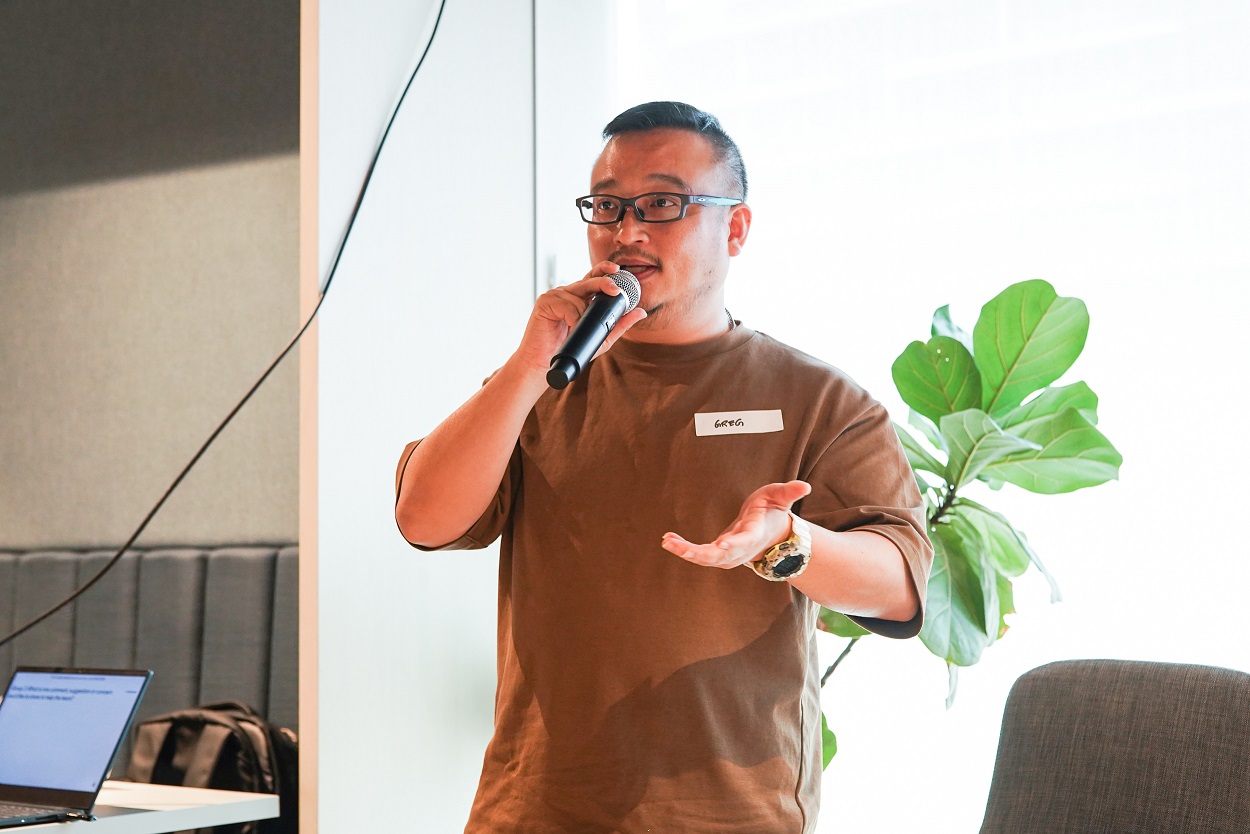
Sharing of ideas related to digital literacy
The second theme on digital literacy also saw three teams presenting their ideas. Adrian, the other co-founder of social enterprise SG Assist presented his team’s idea to help single mothers in public rental flats get access to Internet of Things (IOT) solutions that could help them with child-minding or other matters that can improve their quality of life. For example, using a smart meter to control power and water consumption which can generate energy saving benefits and cost savings.
To go further, his team is looking to speak with more single parents to identify their main stressors and figure out if IOT solutions (or even simple mobile applications) can be used to address some of these stressors.
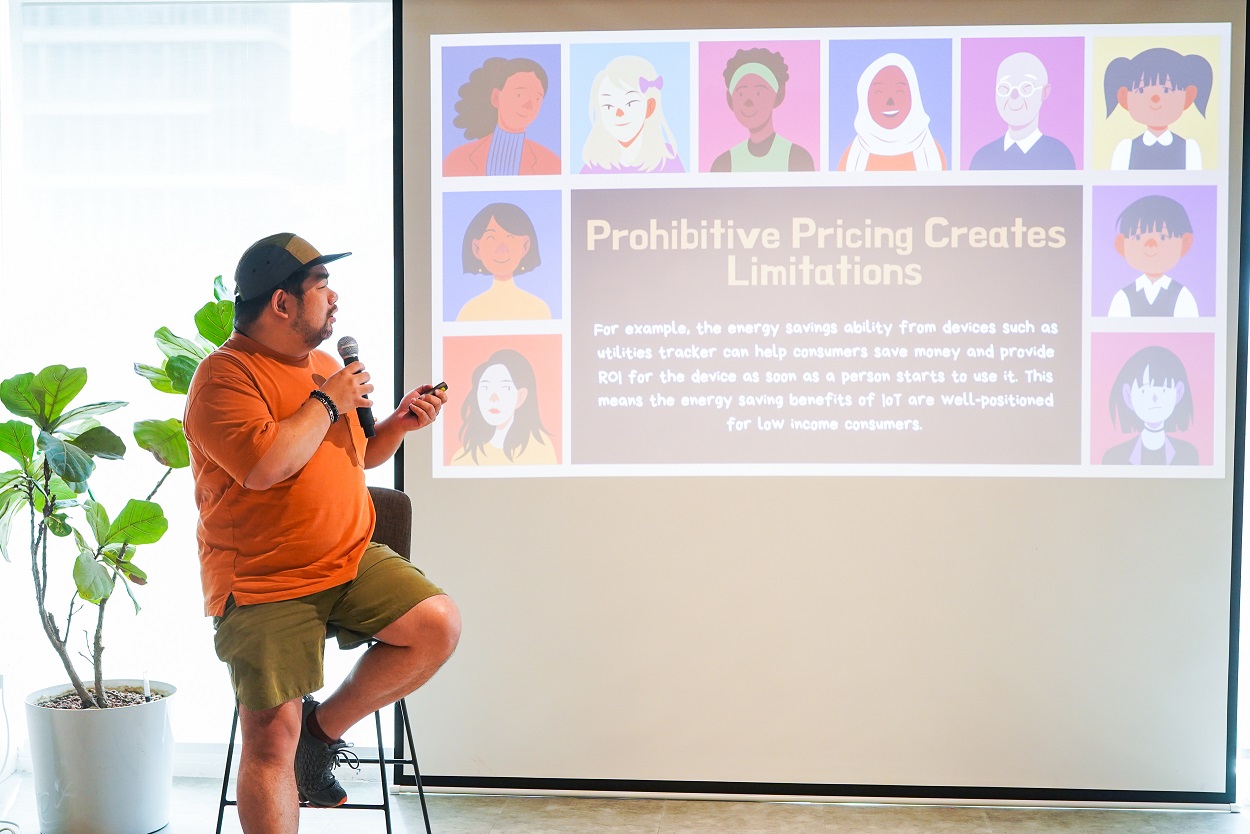
Next, Victor, co-founder of Hatch, a social enterprise helping youths to learn digital skills, took the stage to share his team’s idea of nurturing curiosity of the digital world in youths through play-based activities such as Roblox and Minecraft.
His team is looking to do an extensive mapping of existing play programs and speak to folks who have experience in play-based pedagogies.
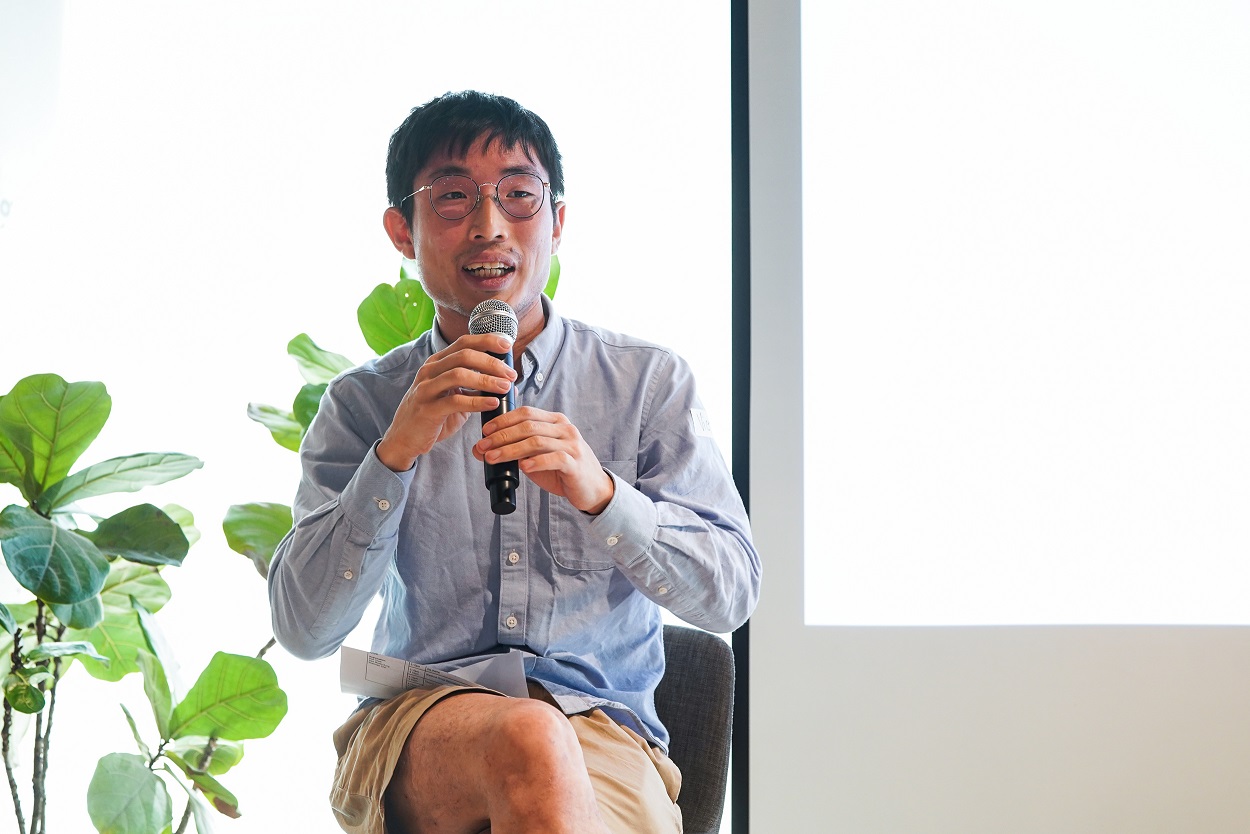
Lastly for this category was Nadine, a Chief Product Officer at a technology company. She observed that many children from low income families do not have access to classes, skills learning and mentorship to help them succeed in the digital economy.
Her team’s idea was to design hackathons on themes that these children could relate to, so as to equip them with digital skills in the process. For example, there could be a hackathon on how to use technology to bring joy to seniors living in public rental flats who are suffering with social isolation.
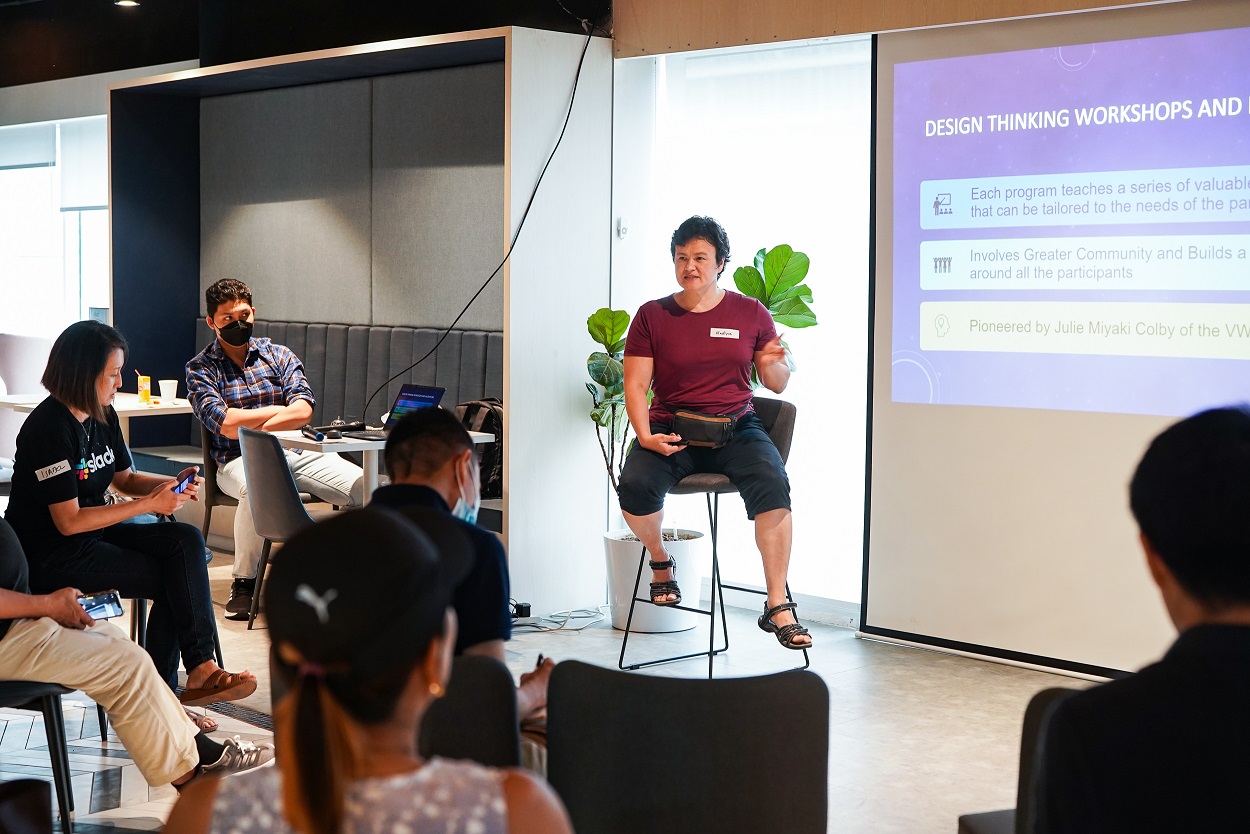
Sharing of ideas related to online harms
The third theme on online harms saw two teams present their ideas. First was Vincent, who shared that his team had spoken to a representative from TOUCH Community Services and learnt about the different online harms that youths face in Singapore and the different interventions that TOUCH was putting in place to support them with navigating these online harms.
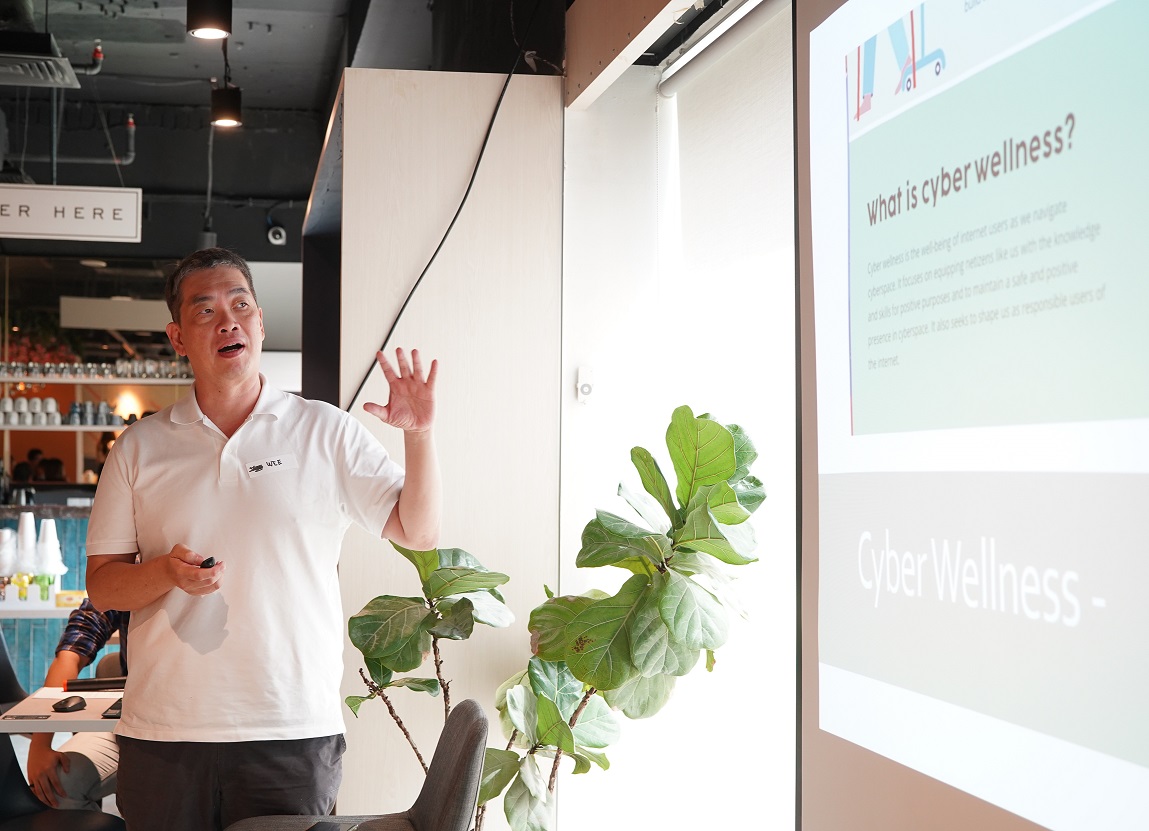
He mentioned that the interventions seem comprehensive and one area that he is hoping to explore more was that of the role of the family unit in a child / youth’s digital well-being and if there is room for some solutions to be developed here.
Lastly, Phil, a community care executive at a local social service agency, shared his personal observation that in spite of the various programs and clinics out there educating seniors on online scams, the number of seniors being scammed is still increasing.
For example, the number of phishing scams involving seniors saw a 3X increase from 153 in 2020 to 561 in 2021, while investment scams involving seniors increased from 117 to 207.
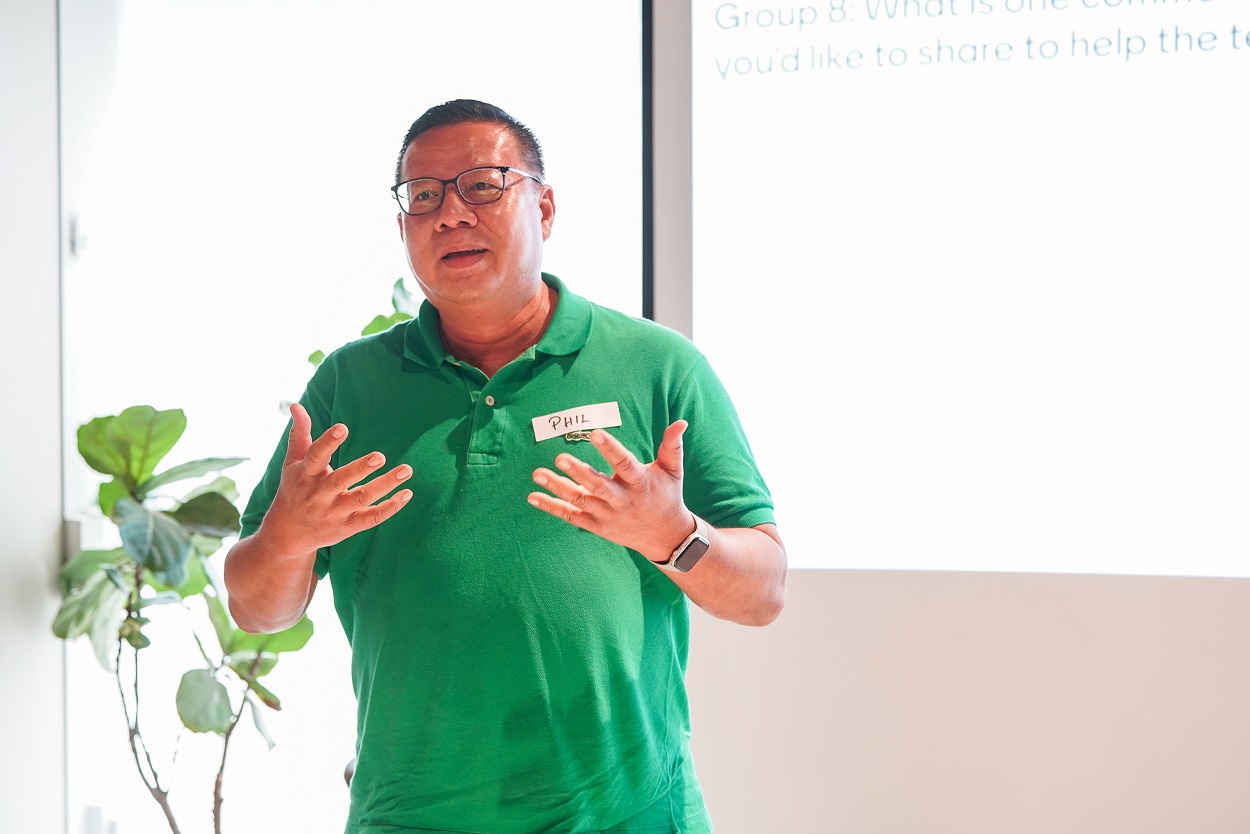
Beyond that, scam values are also increasing. In 2020, Singaporeans lost $264.8 million to online scams, which increased by almost 2.5 times to $633.3 million in 2021 and it is projected to increase further.
So instead of creating a new program, the team is wondering if there are ways to study the effectiveness of current programs with seniors, perhaps even leading to the proposal of a set of measures and an evaluation framework that can be used to evaluate the effectiveness of digital and scam literacy programs in Singapore, which could be piloted with a group of seniors who are already attending programs organized by an Active Ageing Centre.
Receiving audience feedback
After the pitches were completed, the teams broke out into different groups to receive in-depth feedback, suggestions and comments from audience members and each other.
There was a vibrant discussion as assumptions were challenged and the feasibility of some ideas were discussed in a spirit of building each other up and helping each other to improve the ideas to better serve the communities we care about.
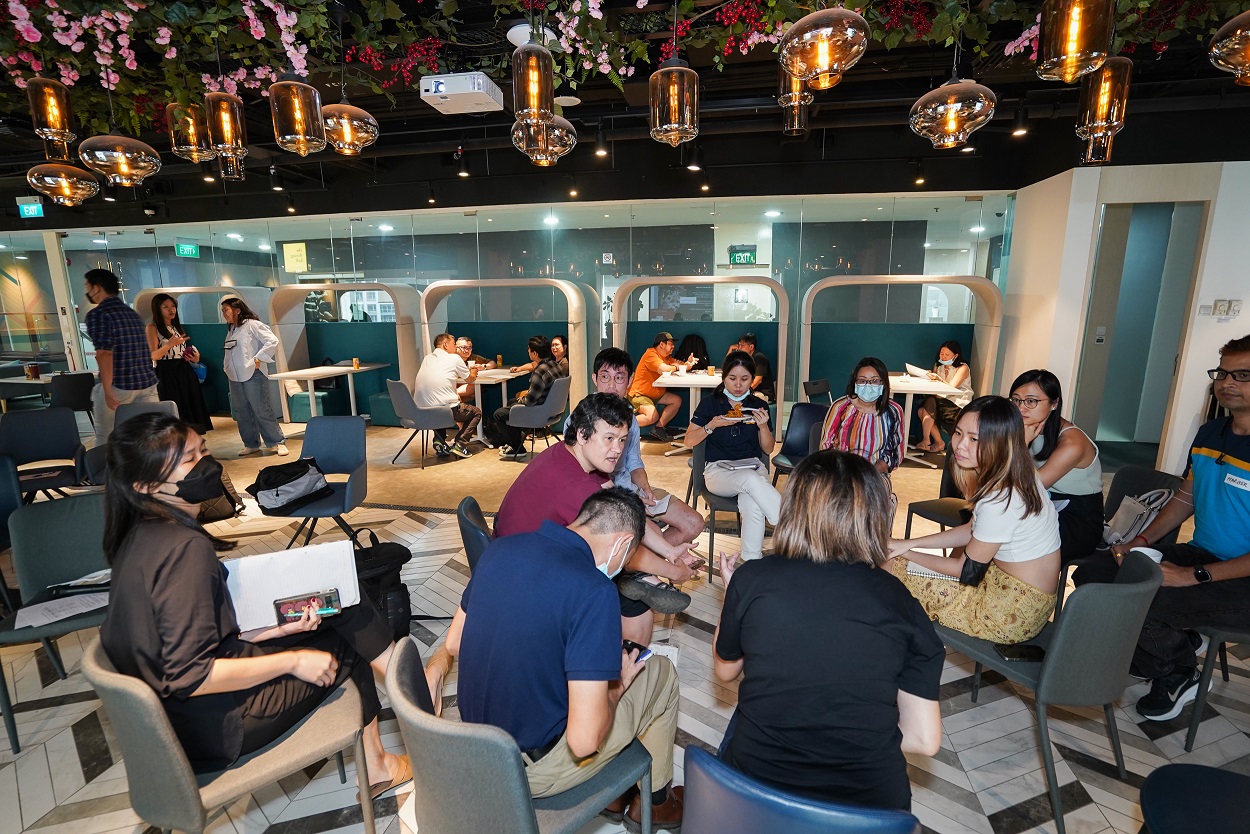
The road ahead in workshop 4
The teams will now incorporate the feedback given by the audience members to further develop their idea into a pitch that they will give on Saturday, 3rd December 2022, to a room of funders, social impact organisations, government agencies, foundations, potential volunteers, and anyone who cares about digital inclusion.
Interested to come hear their ideas and see how you can contribute? Come join us for the pitch by registering here: https://dil3workshop4.peatix.com/
